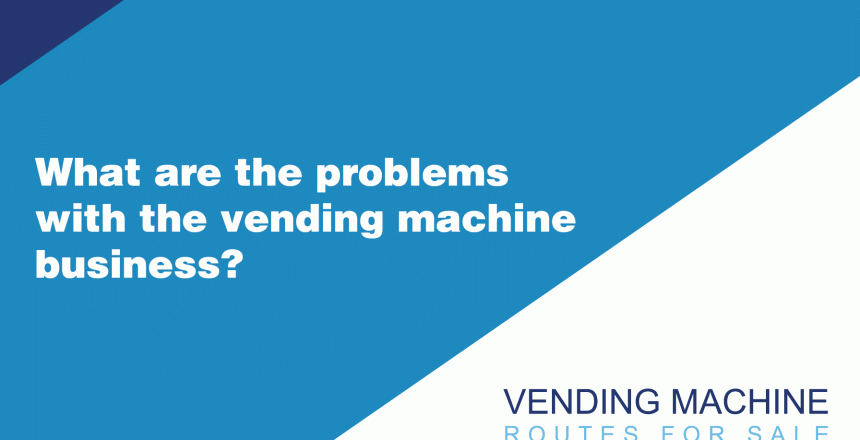While the vending machine business is often touted for its simplicity and potential for passive income, it’s not without its challenges. Entrepreneurs entering this industry must be aware of various problems they may encounter to effectively navigate and manage a successful vending machine business. Here, we’ll discuss some common issues faced in this industry and provide insights, referencing resources such as VendingMachineRoutesForSale.com for additional support.
1. Finding and Securing Prime Locations
One of the most significant challenges in the vending machine business is finding and securing profitable locations. The success of a vending machine heavily depends on its placement. High-traffic areas are ideal, but they are often in high demand and more expensive to secure. Moreover, the competition for these spots can be intense, with many businesses vying for the same prime real estate.
2. Managing Initial Investment and Operational Costs
The upfront cost of purchasing vending machines can be a barrier for some entrepreneurs. Additionally, there are operational costs to consider, including maintenance, restocking, and potentially renting space for the machines. Balancing these expenses with revenue to ensure profitability requires careful financial planning and management.
3. Inventory Management
Maintaining the right mix of products in your vending machines to meet customer demand without overstocking is a delicate balance. Ineffective inventory management can lead to loss of sales due to stockouts or spoilage of perishable goods. Continuously monitoring sales trends and adjusting inventory accordingly is essential but can be time-consuming.
4. Maintenance and Upkeep
Regular maintenance and prompt repair of vending machines are crucial to avoid downtime, which can lead to lost revenue. Vandalism and wear and tear are also common issues, requiring additional time and resources to address. For those who own multiple machines or routes, this aspect of the business can become particularly challenging.
5. Adapting to Consumer Preferences and Trends
Staying relevant and appealing to customers is crucial in the vending machine business. This means keeping up with changing consumer preferences and trends, such as the increasing demand for healthier snack options or cashless payment methods. Failing to adapt can result in decreased sales.
6. Navigating Legal and Regulatory Requirements
Depending on the location, vending machine operators may need to navigate a variety of legal and regulatory requirements. These can include health and safety regulations, business licenses, and compliance with state and local tax laws. Keeping abreast of these requirements and ensuring compliance can be complex and time-consuming.
7. Security Concerns
Vending machines, especially those in less secure or unsupervised locations, can be targets for theft and vandalism. Ensuring the security of machines and the cash inside them is a critical concern that requires strategic planning and sometimes additional investment in security measures.
Conclusion
The vending machine business, while offering many advantages, comes with its share of challenges. From securing the right locations and managing inventory to maintaining machines and adapting to market trends, there are several aspects that require careful consideration and management. Utilizing resources such as VendingMachineRoutesForSale.com can provide valuable guidance and support to those navigating these challenges. With the right approach and strategies, these problems can be managed effectively, paving the way for a successful and profitable vending machine business.
